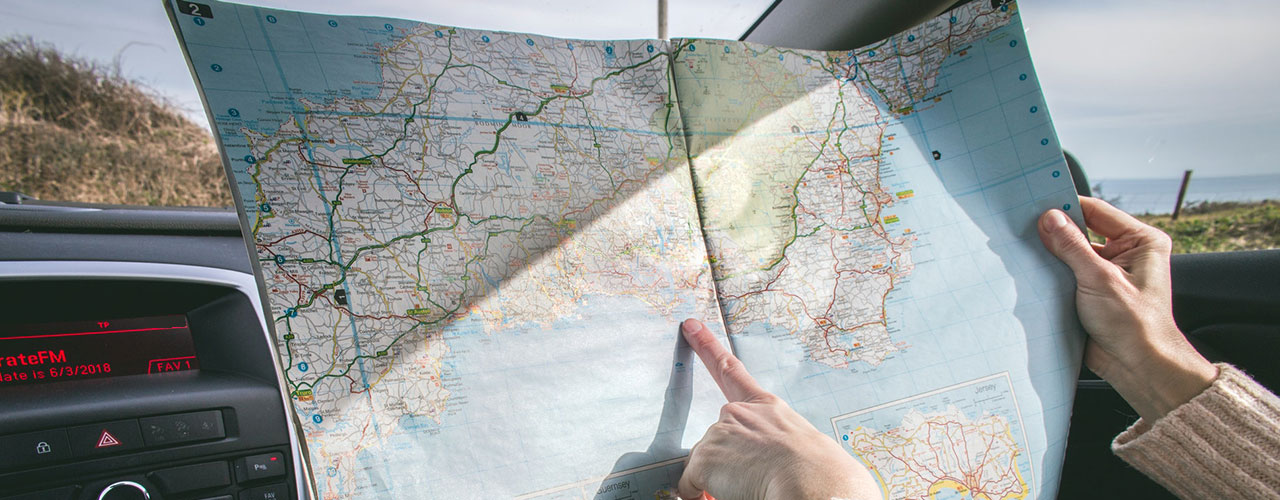
It’s safe to say everyone deserves a fun, stress-free getaway this summer. After a year at home, it’s exciting to anticipate any trek farther than the grocery store. Just don’t let the euphoria of your vacation plans cloud your financial vision. It’s less fun to discover hidden fees and transactional charges you’ll have to pay when you get back.
We tend to tally the obvious trip expenses: hotel, meals, entertainment, and gas or airfare. But being more informed about your spending options might be the most cost-effective decision you make, whether you’re headed to San Diego or São Paulo.
With some research, budgeting, and extra cash on hand, you’ll be ready to hit the road.
Budget Beforehand
There’s nothing quite like pulling up to a hotel in a completely new town or city. It’s easy to overindulge in restaurants and gift shops – and you deserve to enjoy yourself! That’s why budgeting should happen before you hit the road. A full assessment of these types of costs will give you a clearer idea of how many extra dollars there are for vacation fun:
- Parking
- Tolls
- Taxis or ride services
- Tipping
- Movies
- Sporting events
- Other recreation
- Extra expenses
A fun way to stay on budget is to bring a journal to track your spending. It will help you remember the wonderful places you’ve been – and align your daily expenditures with your spending plan.
Road Trip Tips
Would you believe the average household cost of gas for out-of-town trips is $669 annually? You may not be able to control fluctuations in gas prices, but you have some ability to regulate your road trip expenses. A bit of research will tell you the cost differentials of gas stations where you’re headed. Apps like GasBuddy, which shows the cheapest gas stations on a given route, can help you plan where to make pit stops.
There are other small ways to save on gas, like keeping your tires filled to optimize your gas mileage. Then, of course, there are numerous gas rewards programs with varying ways to gain at the pump. As with airline miles, getting cashback rewards on gas may require some form of membership that allows you to accrue points. A Cosco member in Sacramento, for instance, could save 45 cents per gallon, according to a 2019 report.
Every little bit saved on gas can add up to extra money for ice cream and souvenirs. And don’t forget to pack snacks and water for the road!
Avoid Unnecessary Charges
Some transaction fees are unavoidable, even at home, and those rules can vary once you leave town. ATM fees vary from state to state, so contact your card providers to get a sense of ATM locations and how to dodge extra fees where you’re headed. If you can’t avoid a surcharge, you can still compare it with the cost of other forms of payment to discover whether cash or credit is the better deal.
Cash Is Convenient
A trip overseas requires a little more homework. It can be disorienting to land in a foreign country, and currency exchange shops might not be open or available at your destination. It’s always a good idea to arrive with foreign currency as well as US dollars since many countries accept both.
Plan to visit a foreign currency exchange store before leaving, where the signs and exchange rates are in your own language. Keep in mind that smaller outfits such as street vendors may only accept cash. If you need to grab a bite or catch a cab at the airport, you’ll be glad you arrived prepared.
Remember – money is cultural as well as transactional. Familiarize yourself with tipping customs, and be sure you understand the denominations of any foreign currency you’ll be carrying. Many a tourist has overpaid or left an unusually large tip by accident. Fortunately, you no longer need to rely on math skills alone. Just upload a currency calculator on your phone and you’re good to go.
Be Aware of International Fees
Credit cards are extremely convenient when in another country, but the charges will include international fees that vary according to the location. Those fees can add up when you’re not paying attention. When you’re low on cash, ATMs work much the same as here, but with additional fees. A bit of research on the place where you’re headed will give you a sense of what the best options are for your wallet.
Keep in mind that local merchants who charge you in your home currency on your credit card may have the option of setting the currency conversion rate. Be sure you’ve looked into what your credit card is charging so you can choose the payment option that gives you a better rate.
At Community Financial Service Centers we understand the complexities that come with out-of-town spending. To set up a prepaid debit card, get foreign currency, or take advantage of our many financial services, find the nearest CFSC location to you and stop on by.